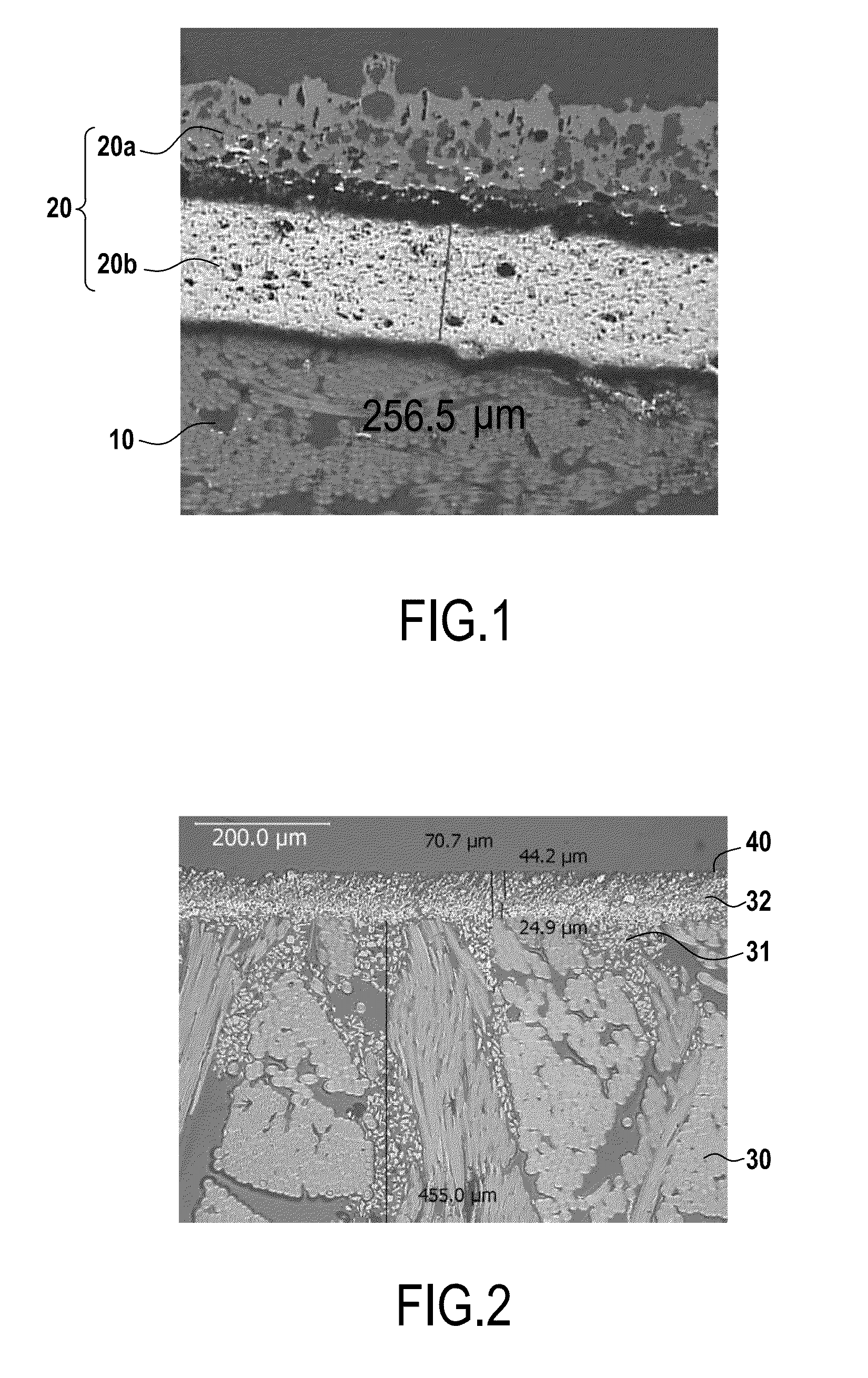Ultra-Refractory Material that is Stable in a Wet Environment, and Process for Manufacturing Same
a technology of ultra-refractory materials and wet environments, applied in the field of making ultra-refractory materials, can solve the problems of cracks appearing in the ultra-refractory layer, oxidizing of composite materials, loss of thermostructural properties in part, etc., and achieves the effect of increasing the ultra-re not harmful to stability, and increasing the utlrarefractory nature of materials
- Summary
- Abstract
- Description
- Claims
- Application Information
AI Technical Summary
Benefits of technology
Problems solved by technology
Method used
Image
Examples
Embodiment Construction
[0052]The invention proposes a novel ultra-refractory material suitable for withstanding temperatures higher than 2000° C., and more particularly higher than 2300° C., in an oxidizing medium, and in particular a wet environment involving the presence of oxygen and of water vapor.
[0053]The material of the invention may be used to form refractory parts for use under such conditions, such as for example heat shields for enabling vehicles to re-enter the atmosphere. The material of the invention may also be used as a protective coating for substrates of parts that are to be exposed to high temperatures (greater than 2300° C.) in an oxidizing medium, in particular the throats of rocket engine nozzles or portions of aeroengines, in particular of the turbojet type.
[0054]The substrate of the part may be made of a thermostructural composite material containing at least some carbon, such as for example C / C composites, which in known manner comprise a material made up of carbon fiber reinforce...
PUM
| Property | Measurement | Unit |
|---|---|---|
| Percent by volume | aaaaa | aaaaa |
| Temperature | aaaaa | aaaaa |
| Refractory | aaaaa | aaaaa |
Abstract
Description
Claims
Application Information
 Login to View More
Login to View More - R&D
- Intellectual Property
- Life Sciences
- Materials
- Tech Scout
- Unparalleled Data Quality
- Higher Quality Content
- 60% Fewer Hallucinations
Browse by: Latest US Patents, China's latest patents, Technical Efficacy Thesaurus, Application Domain, Technology Topic, Popular Technical Reports.
© 2025 PatSnap. All rights reserved.Legal|Privacy policy|Modern Slavery Act Transparency Statement|Sitemap|About US| Contact US: help@patsnap.com

